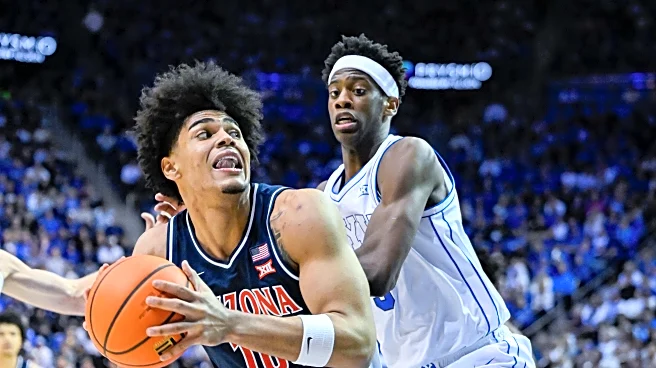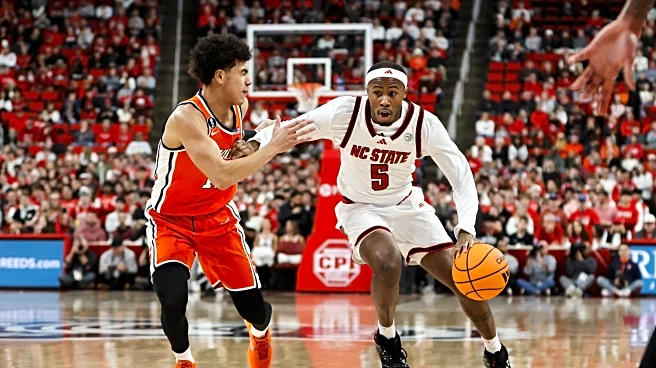What's Happening?
The Los Angeles Dodgers, despite their substantial $400 million investment in their lineup, are facing significant challenges as their season approaches a critical juncture. The team, which was expected
to perform as the top-scoring team in the National League, is currently underperforming, unable to secure hits that match their financial outlay. This situation mirrors the earlier collapse of the New York Mets, who also struggled despite a hefty $340 million investment. The Dodgers' inability to capitalize on their financial resources highlights the unpredictable nature of baseball, where timing and performance often outweigh monetary considerations.
Why It's Important?
The Dodgers' current predicament underscores the limitations of relying solely on financial investments to secure success in sports. This situation is significant for the broader sports industry, as it challenges the notion that higher spending guarantees better performance. Teams across the league may need to reassess their strategies, focusing more on player development and team dynamics rather than just financial expenditure. The Dodgers' struggle could influence future decisions regarding team investments and player acquisitions, potentially leading to a shift in how teams allocate resources.
What's Next?
As the Dodgers' season hangs in the balance, the team must find ways to improve their performance and justify their substantial financial investment. This may involve strategic changes in player lineup or coaching approaches to enhance their hitting capabilities. The team's management will likely face pressure to deliver results, and fans will be watching closely to see if the Dodgers can turn their season around. The outcome of this situation could have lasting implications for the team's future and its approach to building a competitive roster.
Beyond the Headlines
The Dodgers' situation also raises questions about the ethical considerations of high financial investments in sports. It prompts a discussion on the balance between financial power and fair competition, as well as the impact of such investments on the integrity of the game. Additionally, the team's struggle may influence cultural perceptions of success in sports, emphasizing the importance of teamwork and skill over monetary resources.









